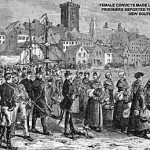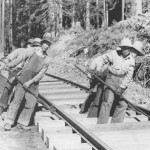Why Should we Go back to the Histories of Immigration of Late and Early Twentieth Century?
by Ranabir Samaddar
Recent studies on aspects of welfare state and schemes suggest a different way of understanding modern governance in which the study of the nation is not at the centre of political understanding. Instead, of significance in such studies is the inadequately explored history of governing a mobile, unruly world of population flows. These works have given us a sense of the hidden histories of conflicts, of desperate survivals, and of networks new and old. Studies of hunger in the nineteenth century, of itinerant movements and preaching, transportations of coolies, spread of famines, shipping of children and adult girls, trafficking in sex and labour, and pieces of welfare legislation to cope with this great infamy tell us how actually we have arrived at our own time of subject formation. This is certainly different from conventional nation-centred histories. Working within this new strand of history-writing, labour historians have tried to recognise the political significance of labour migration in the late nineteenth and early twentieth century. Their works suggest a different way of writing the history of the nation-form in the last two centuries, where the extra-nationalist narrative of mobile labour constitutes a different universe.
The late nineteenth and early twentieth century was the period of several changing modes of labour process – the slave, the indentured, the contract, and finally the free. These modes historically never appeared as pure types, because much of the availability of labour depended on labour’s mobility. In fact, it was largely on the condition of making labour mobile that globalisation would proceed at that time. Transit labour then too, as it does now, occupied a crucial place in capitalist production. The late nineteenth and early twentieth century was a period of globalisation when migration controls were put in place. It was in that age that control of mobile bodies began constituting one of the most critical aspects of governance. The emergence of some of the different forms of labour subjectivities marking our world today can be traced back to that time.
Ranabir Samaddar (Calcutta Research Group)


